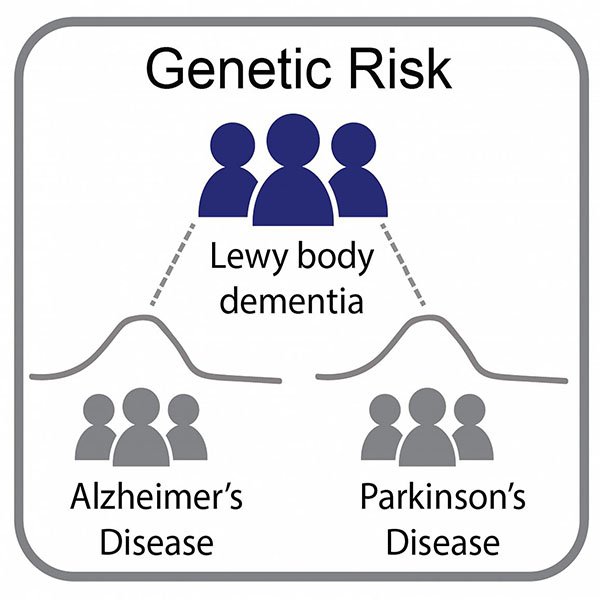Genetic study of Lewy body dementia supports ties to Alzheimer’s and Parkinson’s diseases
NIH-led study locates five genes that may play a critical role in Lewy body dementia
In a study led by National Institutes of Health researchers, scientists found that five genes may play a critical role in determining whether a person will suffer from Lewy body dementia, a devastating disorder that riddles the brain with clumps of abnormal protein deposits called Lewy bodies. Lewy bodies are also a hallmark of Parkinson’s disease. The results, published in Nature Genetics, not only supported the disease’s ties to Parkinson’s disease but also suggested that people who have Lewy body dementia may share similar genetic profiles to those who have Alzheimer’s disease.
“Lewy body dementia is a devastating brain disorder for which we have no effective treatments. Patients often appear to suffer the worst of both Alzheimer’s and Parkinson’s diseases. Our results support the idea that this may be because Lewy body dementia is caused by a spectrum of problems that can be seen in both disorders,” said Sonja Scholz, M.D., Ph.D., investigator at the NIH’s National Institute of Neurological Disorders and Stroke (NINDS) and the senior author of the study. “We hope that these results will act as a blueprint for understanding the disease and developing new treatments.”
The study was led by Dr. Scholz’s team and researchers in the lab of Bryan J. Traynor, M.D., Ph.D., senior investigator at the NIH’s National Institute on Aging (NIA).
This page was last updated on Friday, January 21, 2022
